News written by James Delahunty (February, 2011)
Written by James Delahunty @ 24 Feb 2011 9:00
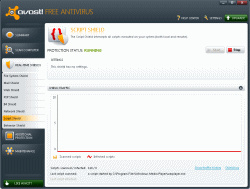 AVAST Software a.s. has released new versions of its popular set of anti-virus and security products.
AVAST Software a.s. has released new versions of its popular set of anti-virus and security products.
Used by over 130 million users worldwide, Avast! Antivirus is one of the most trusted and recommended solutions for protecting against virus and spyware infections. Using the Free version of the software does not put you at any great disadvantage compared to the Pro version, which is not something you can say for a lot of free anti-virus suites that have paid equivalents.
Using the free version does require you to register the program using a valid e-mail address, but this only takes a minute and you have 30 days to stop procrastinating and do it.
Time and time again, Avast! has been recognized for its effectiveness at protecting systems. In 2008, AV Comparatives awarded the software an "Advanced" rating for its performance, and awarded it an "Advanced+" rating in 2009. In 2010, Avast! claimed the VB100 award from Virus Bulletin for, amongst other accomplishments, detecting 100 percent of in-the-wild virus samples it was exposed to.
AVAST Software may have gotten something of an ego-boost in November 2010. During an episode of WWE NXT in Manchester, England, an announcement that the "virus database has been updated" is audible over the PSA Announce system, prompting speculation that World Wrestling Entertainment uses Avast! products to protect its systems during broadcasts.
Read more...
Written by James Delahunty @ 16 Feb 2011 6:25
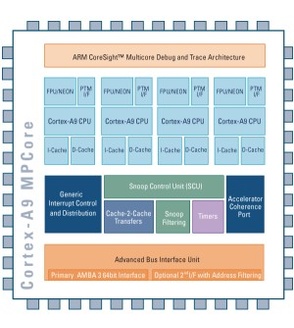 British technology firm ARM Holdings, plc. is expecting a boost in revenues from new high-end smartphones unveiled this week in Barcelona.
British technology firm ARM Holdings, plc. is expecting a boost in revenues from new high-end smartphones unveiled this week in Barcelona.
New high-end devices utilize ARM's new multi-core processor technologies. ARM licenses its technology to chipmakers like Broadcom, Samsung and Renesas instead of making chips of its own. It earns revenue from royalties on the sale of microprocessor units, as well as charging a licensing fee for the use of its technology.
Smartphones such as the new LG Optimus 3D and Samsung Galaxy SII are powered by ARM's Cortex, dual-core designs, which are also used to power tablet computers and microcontrollers.
It receives up to two percent of the selling price of chips based on the Cortex designs, and about one percent for the older chip technology which is still widely in use. The switch then to Cortex architecture in smartphones and tablets will significantly increase the revenue from royalty payments.
ARM CEO Warren East told Reuters that the company is not surprised by the speed of the roll-out of its newer chip technologies. He said that the company is keeping an edge over Intel in the ever-growing space. "Intel is still a long way apart in processors on the market," he said. "Unless they can make their processors smaller they will struggle."
Written by James Delahunty @ 16 Feb 2011 6:11
 Symantec has published a report on the Stuxnet malware that made headlines around the world last year.
Symantec has published a report on the Stuxnet malware that made headlines around the world last year.
The complex piece of malware was believed to be targeted at Iran's nuclear program, with fingers of blame pointing at the United States and/or Israel for mandating it (though the origin of the malware itself is still a mystery).
Now a detailed description of Stuxnet has been released by Symantec, and the well-known security firm says it was targeted at five industrial facilities in Iran over 10 months. Symantec did not mention the targets by name however, and would not confirm whether the targets had links to the country's nuclear program.
Iran has denied that Stuxnet caused any major damage to its nuclear facilities, but analysis has previously shown that Stuxnet had the capability to disrupt the centrifuges used to enrich uranium. Once Stuxnet compromised a computer network, it was designed to seek out a specific configuration of industrial control software made by Siemens.
It would then reprogram the PLC software to alter instructions given to attached industrial machinery.
Symantec suggests that the authors of the Stuxnet malware must have had extensive knowledge of the systems in use at the targeted organizations. It infected and spread by use of USB keys, bringing it to networks not usually connected to the Internet for security reasons. The virus could have been spread among the targeted organizations by contractors associated with them.
Read more...
Written by James Delahunty @ 07 Feb 2011 3:44
 An Iranian official said that the country must investigate claims that the Stuxnet worm could have caused major harm to its first nuclear power station.
An Iranian official said that the country must investigate claims that the Stuxnet worm could have caused major harm to its first nuclear power station.
Mohammad Ahmadian, head of Iran's Atomic Energy Organization, said that reports of damage to the country's Bushehr plant were a malicious campaign by countries hostile to Tehran's nuclear program.
"Many of these discussions raised in the media and world public opinion about the Stuxnet virus are an effort to create concern among the Iranian people and people of the region and delay the work of the nuclear power plant," he said.
"Therefore it is necessary that experts in the field investigate to see how much truth there is in these discussions."
Analysts believe that Stuxnet was a successful attack by the United States and/or Israel on the Iranian nuclear program, which both suspect has a goal of creating nuclear weapons. Iran has given mixed reports on the true impact of Stuxnet on its systems since the story emerged publicly.
Russia's NATO ambassador created headlines recently when he said the virus could potentially lead to a "new Chernobyl". Russia supplied the fuel for the Bushehr plant, and despite the alarming comment on a new Chernobyl-like incident, Ahmadian indicated that there is no significant delay as a result in the start-up of the plant, which will supply electricity to the country's national grid.
Written by James Delahunty @ 07 Feb 2011 3:44
 A man is facing jail time for stealing thousands of pounds worth of virtual pokers chips from an online poker website.
A man is facing jail time for stealing thousands of pounds worth of virtual pokers chips from an online poker website.
Ashley Mitchell admitted in court to stealing more than 400 billion virtual chips after breaking into the systems of Zygna, an online gaming outlet. The 400 billion virtual chips had a face value of about $12 million (£7.4 million).
Mitchell had managed to gain £53,000 from the theft by selling the stolen virtual chips using a series of online accounts on social networking sites. He charged £430 per 1 billion virtual chips.
He posed as an administrator for the Zynga Poker game between June and September of 2009, before he gained access to the company's computer systems and carried out the electronic theft.
After realizing the amount of chips that had gone "missing", Zynga set up a sting which tracked down Mitchell. He pleaded guilty to five charges brought under the Computer Misuse Act and the Proceeds from Crime Act. He was remanded until a date was fixed for sentencing.
Written by James Delahunty @ 07 Feb 2011 3:44
 Grand Theft Auto developer Gary Penn told Gamasutra about how the original Grand Theft Auto video game title was almost canned during development.
Grand Theft Auto developer Gary Penn told Gamasutra about how the original Grand Theft Auto video game title was almost canned during development.
The GTA series has been one of the biggest stories of the video games industry so far, with the Grand Theft Auto IV title selling a huge 17 million copies within two years of its commercial release. Earlier versions of the title also had strong sales across gaming platforms over the past decade.
All of that came very close to never happening. In fact, it was something that was then considered a kind of "bug" in the game that convinced the developers to continue with it and set its tone.
"It never really felt like it was going anywhere. It was almost canned. The publisher, BMG Interactive, wanted to can it," Penn said. "There are probably two key things it fell down on; two critical things. One of them is stability, which is a really boring one, but it crashed all the f---ing time. So even if you did get something in the game, you couldn't really test it."
Read more...
Written by James Delahunty @ 03 Feb 2011 10:35
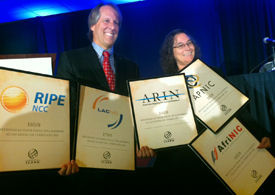 On Thursday, the last top level block of free Internet Protocol version 4 (IPv4) addresses was assigned, igniting a discussion about the future of the Internet and its rapid expansion to more locations and devices.
On Thursday, the last top level block of free Internet Protocol version 4 (IPv4) addresses was assigned, igniting a discussion about the future of the Internet and its rapid expansion to more locations and devices.
IPv4 uses 32bit addressing to route data packets across the Internet, providing for 232 addresses, or 4,294,967,296 addresses. Internet Protocol version 6 (IPv6) is intended to succeed IPv4. Using a 128-bit address, the IPv6 address space allows 2128 addresses, or around 340 undecillion unique addresses (1 undecillion == 1,000,000,000,000,000,000,000,000,000,000,000,000). That means an address pool that is a billion-trillion times larger than IPv4.
IPv4's address format uses a Dotted Decimal Notation, such as "209.62.87.157", to enable communication between devices over the Internet. IPv6 addresses are composed of four hexadecimal digits separated instead by colons, such as "2001:0db8:85a3:0000:0000:8a2e:0370:7334".
IPv6 certainly has lasting power because of the mind-numbing numbers involved. The IPv4 pool is now technically completely exhausted, an event that has been anticipated for years (although a lot of free addresses still remain in most assigned IPv4 blocks and will continue to be allocated for the time being.)
Read more...
Written by James Delahunty @ 03 Feb 2011 12:31
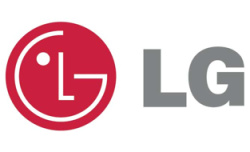 LG Electronics is embracing Near-Field Communication (NFC) technology to offer a swipe payment system to users of LG smartphones.
LG Electronics is embracing Near-Field Communication (NFC) technology to offer a swipe payment system to users of LG smartphones.
The company will build the functionality into smartphones intended for the European market in 2012. It will allow users to make payments using their smartphones at a check-out.
"The point-of-sale technology, which will be targeted at small and medium-sized businesses and will involve NFC or near field communications and cloud computing, is currently in beta testing," Jin-Yong Kim, vice president for business solutions at LG's Home Entertainment division, said.
Frost & Sullivan has predicted that there will be 860 million NFC-enabled mobile phones in use by 2015, and that NFC will be the technology embraced to drive mobile payment systems.
Written by James Delahunty @ 03 Feb 2011 12:31
 Kaspersky has re-assured users of its security software that the availability of source code for some of its past products on file sharing sites does not pose a threat.
Kaspersky has re-assured users of its security software that the availability of source code for some of its past products on file sharing sites does not pose a threat.
The source code for early 2008 versions of the Kaspersky security suite was showing up on more file sharing sites and networks over the past few days. The code was originally taken by an employee who tried to auction it off online.
The incomplete dump of the code actually leaked in November but has only just become a popular thing to trade online recently. The easy availability of the code means that Kaspersky competitors can look over it and possibly make improvements to their own products based on it.
The company does not think that the code is of any use to authors of malware, however. The code is outdated and incomplete, and the core features of the software have been radically changed since it was in use.
"Kaspersky Lab reiterates that this incident cannot harm users of its products, solutions and services in any way. The stolen source code is related to one of the previous product lineups, and since then the company has renewed all key protection technologies," a statement reads.
Read more...
Written by James Delahunty @ 01 Feb 2011 9:28
 Samsung Electronics Co. announced on Tuesday that refunds will be offered to customers who bought Samsung PCs that have Intel's flawed chipset inside.
Samsung Electronics Co. announced on Tuesday that refunds will be offered to customers who bought Samsung PCs that have Intel's flawed chipset inside.
Intel announced on Tuesday that some of its Cougar Point chipsets had been found to have a bad design flaw that required a silicon fix. The chipmaker halted production of the defective chips and started production on new fixed units instead.
The affected chipsets are used in systems that feature Intel's Second Generation Core microprocessors, like some sold by Samsung. "There are six PC line-ups released in Korea and one in the U.S., and we plan to fully refund or exchange the product in question," James Chung, Samsung's spokesman said.
"No financial impact on our business is likely as the total payment will be funded by Intel." The design flaw is expected to cost Intel over $1 billion in repairs and lost revenue, as well as delay the release of more computers using its Sandy Bridge microprocessors.
Written by James Delahunty @ 01 Feb 2011 9:27
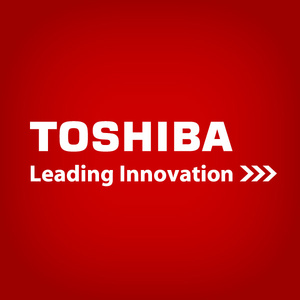 Japanese technology giant Toshiba Corp has been hit with a $100 million lawsuit alleging gender bias, brought by a female employee.
Japanese technology giant Toshiba Corp has been hit with a $100 million lawsuit alleging gender bias, brought by a female employee.
Elaine Cyphers, a senior human resources manager at the company, alleges that women are paid lower salaries than men for comparable jobs at the company, and that it favors men in promotions while putting women into lower grade positions.
The complaint states that just 3.4 percent of Toshiba's 6,237 managers are women, despite Toshiba creating a "Gender Equality Office" six years ago. "We believe the class claims are significant, and will be substantiated in the litigation," said David Sanford, a partner at Sanford Wittels & Heisler LLP who represents Cyphers, calling the numbers "atrocious."
Cyphers says she was paid between $90,000 and $91,800 a year between 2008 and 2010, while men in comparable jobs at Toshiba pulled in $120,000 a year. The lawsuit seeks class action status on behalf of all current and former female employees of Toshiba within the United States.
Toshiba does not comment on pending litigation.
Written by James Delahunty @ 01 Feb 2011 9:27
 U.S. President Barack Obama met with chief executives from U.S. tech companies at the White House on Tuesday to discuss several issues.
U.S. President Barack Obama met with chief executives from U.S. tech companies at the White House on Tuesday to discuss several issues.
Among the CEOs visiting the White House was Ursula Burns of Xerox, Michael Dell of Dell Inc. and Samuel Palmisano of IBM. On the agenda was jobs, education, trade and taxes as the President picked the brains of the heads of the tech giants.
A White House statement said that the President and the CEOs discussed plans for investments in the United States, as well as the importance of prioritizing Science and Math in U.S. education institutions. They also discussed "ideas for reforming and reorganizing the government to streamline the process and improve efficiency through the use of technology."
The group also pledged support for the Obama administrations's work to get free trade agreements through Congress citing support for the Korea Trade Agreement. "Seventy percent of our industry is outside the United States and most of the growth is outside of the United States, so we need a competitive playing field," Palmisano said.
Read more...
Written by James Delahunty @ 01 Feb 2011 9:27
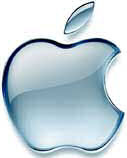 Apple has blocked Sony's e-book application from the App Store, saying it conflicts with Apple's system for managing the purchase of content.
Apple has blocked Sony's e-book application from the App Store, saying it conflicts with Apple's system for managing the purchase of content.
Sony's app would have allowed iPhone / iPad users to read books bought from the Sony store using the Apple devices. The company accused Apple of changing the way it enforces its rules in its decision not to allow it to offer the application through the App Store.
Apple denied that it changed its rules in any way or enforced them any differently for Sony, and that it instead was only looking to ensure that customers could buy books using its "in-app purchase" payment method, which provides Apple with a 30 percent cut of sales made.
The dust up doesn't appear to have affected Amazon.com however. Amazon offers a Kindle app through the App Store which lets users view books bought through Amazon on the Apple devices.
"We opened a dialogue with Apple to see if we can come up with an equitable resolution for both companies as well as our consumers, but reached an impasse at this time," Sony said in a statement on Tuesday. Developer guidelines from Apple state that apps using a different system to the in-app purchase to buy "content, functionality or services" will be rejected.
Read more...
Written by James Delahunty @ 01 Feb 2011 8:08
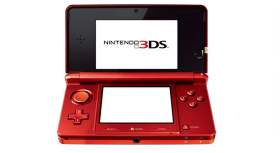 A debate has been brewing over the safety of images produced by 3D televisions amidst suggestions to keep younger viewers away from them.
A debate has been brewing over the safety of images produced by 3D televisions amidst suggestions to keep younger viewers away from them.
The Nintendo 3DS handheld is due to be released in Japan on February 26, offering 3D images to gamers without the need for any glasses to create the effect. Nintendo of America President and COO Reggie Fils-Aime had recommended that very young children not be exposed to the 3D images, and said that it was a standard protocol within the industry.
Following that suggestion and similar advice, a debate has grown in the media about the potential "dangers" of 3D images. Often brought up are comments from Mark Pesce, an early pioneer in virtual reality, made last year where he said children could potentially suffer permanent damage from regular and extensive exposure to 3D images on a screen.
He also criticized the major tech companies pushing the technology for not doing healthy safety tests. Sony, Samsung and LG are among tech giants that do actually issue health and safety guidance with 3D products, mostly echoing the advice made by Nintendo but also extending to people under the influence of alcohol, pregnant women, senior citizens and people with heart health issues.
Read more...
Written by James Delahunty @ 01 Feb 2011 8:08
 The BBC has reported that films available through Apple services to iPhone and iPad users are being sold without the consent of the copyright holders.
The BBC has reported that films available through Apple services to iPhone and iPad users are being sold without the consent of the copyright holders.
Popular films dating back to the Soviet era were obtainable through Apple's services, taking the form of applications that can be installed on Apple devices. Films include old favourites such as Gentlemen of Fortune, Assa, The Diamond Arm, Kin-dza-dza and Cheburashka.
Mosfilm and the Joint State Film Collection (Obyedinennaya Gosudarstvennaya Kinocollectsia) own the copyright to the specific Russian movies, and have not given anyone permission to provide them through Apple's services for free or for a fee.
"It is illegal to present our films as applications either in iTunes or on any other internet site. It is permitted only on our own Mosfilm site," Svetlana Pyleva, Mosfilm's deputy director general, said in an interview with BBC News. "There are no third parties which we have permitted to use our content."
Mosfilm at the time was preparing to submit complaints to Apple. Before apps can be made available through the App Store, Apple has to approve them. The company has said it takes copyright complaints very seriously and will take action immediately against any infringing app.
Written by James Delahunty @ 01 Feb 2011 8:08
 Microsoft has warned Windows users about a security flaw that could affect 900 million Internet Explorer users.
Microsoft has warned Windows users about a security flaw that could affect 900 million Internet Explorer users.
The company warned in an advisory that the flaw could potentially be exploited by malicious users to hijack a computer or steal private information. Even though the flaw itself is in Windows, it only appears to affect the way Internet Explorer handles webpages and documents.
"When the user clicked that link, the malicious script would run on the user's computer for the rest of the current Internet Explorer session," wrote Microsoft representative Angela Gunn.
"Such a script might collect user information, e.g e-mail, spoof content displayed in the browser or otherwise interfere with the user's experience."
Microsoft said it has seen no evidence that the loophole is being exploited in the wild. The company is working on a permanent patch to fix the problem permanently, but concerned Internet Explorer users can utilize a Microsoft "Fix It" solution to guard against it until then.
More information: http://support.microsoft.com/kb/2501696
Written by James Delahunty @ 01 Feb 2011 8:08
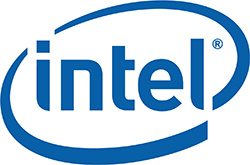 Intel announced yesterday that it had discovered a design flaw that affects its Intel 6 Series (code-named Cougar Point) chipsets.
Intel announced yesterday that it had discovered a design flaw that affects its Intel 6 Series (code-named Cougar Point) chipsets.
The chip-maker said it has implemented a silicon fix for the problem. In some cases, the Serial-ATA (SATA) ports within the chipsets may degrade over time, potentially impacting the performance or functionality of SATA-linked devices such as HDDs and DVD drives.
The chipset is utilized in PCs with Intel's latest Second Generation Intel Core processors, code-named Sandy Bridge. Intel has stopped shipment of the affected support chip from its factories.
The Sandy Bridge microprocessor is unaffected and no other products are affected by this issue. The company will start delivering the updated version of the chipset to its customers in late February. The systems with the affected support chips have only been shipping since January 9th and the company believes that relatively few consumers are impacted by this issue.
For the first quarter of 2011, Intel expects this issue to reduce revenue by approximately $300 million as the company discontinues production of the current version of the chipset and begins manufacturing the new version, but full-year revenue is not expected to be materially affected by the problem.

 AVAST Software a.s. has released new versions of its popular set of anti-virus and security products.
AVAST Software a.s. has released new versions of its popular set of anti-virus and security products.

 British technology firm ARM Holdings, plc. is expecting a boost in revenues from new high-end smartphones unveiled this week in Barcelona.
British technology firm ARM Holdings, plc. is expecting a boost in revenues from new high-end smartphones unveiled this week in Barcelona.
 Symantec has published a report on the Stuxnet malware that made headlines around the world last year.
Symantec has published a report on the Stuxnet malware that made headlines around the world last year.
 An Iranian official said that the country must investigate claims that the Stuxnet worm could have caused major harm to its first nuclear power station.
An Iranian official said that the country must investigate claims that the Stuxnet worm could have caused major harm to its first nuclear power station.
 A man is facing jail time for stealing thousands of pounds worth of virtual pokers chips from an online poker website.
A man is facing jail time for stealing thousands of pounds worth of virtual pokers chips from an online poker website.
 Grand Theft Auto developer Gary Penn told
Grand Theft Auto developer Gary Penn told  On Thursday, the last top level block of free Internet Protocol version 4 (IPv4) addresses was assigned, igniting a discussion about the future of the Internet and its rapid expansion to more locations and devices.
On Thursday, the last top level block of free Internet Protocol version 4 (IPv4) addresses was assigned, igniting a discussion about the future of the Internet and its rapid expansion to more locations and devices.
 LG Electronics is embracing Near-Field Communication (NFC) technology to offer a swipe payment system to users of LG smartphones.
LG Electronics is embracing Near-Field Communication (NFC) technology to offer a swipe payment system to users of LG smartphones.
 Kaspersky has re-assured users of its security software that the availability of source code for some of its past products on file sharing sites does not pose a threat.
Kaspersky has re-assured users of its security software that the availability of source code for some of its past products on file sharing sites does not pose a threat.
 Samsung Electronics Co. announced on Tuesday that refunds will be offered to customers who bought Samsung PCs that have Intel's flawed chipset inside.
Samsung Electronics Co. announced on Tuesday that refunds will be offered to customers who bought Samsung PCs that have Intel's flawed chipset inside.
 Japanese technology giant Toshiba Corp has been hit with a $100 million lawsuit alleging gender bias, brought by a female employee.
Japanese technology giant Toshiba Corp has been hit with a $100 million lawsuit alleging gender bias, brought by a female employee.
 U.S. President Barack Obama met with chief executives from U.S. tech companies at the White House on Tuesday to discuss several issues.
U.S. President Barack Obama met with chief executives from U.S. tech companies at the White House on Tuesday to discuss several issues.
 Apple has blocked Sony's e-book application from the App Store, saying it conflicts with Apple's system for managing the purchase of content.
Apple has blocked Sony's e-book application from the App Store, saying it conflicts with Apple's system for managing the purchase of content.
 A debate has been brewing over the safety of images produced by 3D televisions amidst suggestions to keep younger viewers away from them.
A debate has been brewing over the safety of images produced by 3D televisions amidst suggestions to keep younger viewers away from them.
 The BBC has reported that films available through Apple services to iPhone and iPad users are being sold without the consent of the copyright holders.
The BBC has reported that films available through Apple services to iPhone and iPad users are being sold without the consent of the copyright holders.
 Microsoft has warned Windows users about a security flaw that could affect 900 million Internet Explorer users.
Microsoft has warned Windows users about a security flaw that could affect 900 million Internet Explorer users.
 Intel announced yesterday that it had discovered a design flaw that affects its Intel 6 Series (code-named Cougar Point) chipsets.
Intel announced yesterday that it had discovered a design flaw that affects its Intel 6 Series (code-named Cougar Point) chipsets.







